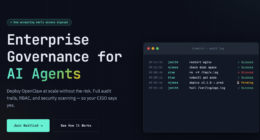Mastering AI skills can open some of the highest earning opportunities today. Roles like AI Product Managers, Research Scientists, and Machine Learning Engineers earn hundreds of thousands annually, with top-tier salaries reaching nearly a million dollars. Geographic location and industry demand influence these figures, but AI expertise consistently commands a premium. If you keep exploring, you’ll discover how developing these skills can position you in this lucrative, fast-growing market.
Key Takeaways
- AI experts like product managers and research scientists earn salaries up to $900,000 annually, making AI a high-income field.
- Developing specialized AI skills significantly increases earning potential, with premiums ranging from 19% to over 50%.
- Top AI roles in tech giants command salaries well above $300,000, reflecting high demand and strategic importance.
- Geographic location influences earnings, with hubs like San Francisco offering higher salaries compared to other regions.
- Rapid growth in AI fields, such as robotics and machine learning, presents lucrative opportunities for skilled professionals.

In today’s tech-driven economy, AI expertise stands out as a key driver of high earnings. If you develop skills in artificial intelligence, you position yourself at the forefront of innovation and notably increase your earning potential. Top-tier roles like AI Product Managers, Research Scientists, and Machine Learning Engineers command salaries ranging from $130,000 to over $900,000 annually. For example, AI Product Managers at leading companies such as Netflix and Meta earn between $300,000 and $352,000, reflecting the high value placed on strategic AI oversight. Similarly, AI Research Scientists, especially those at firms like Google DeepMind and Meta, can reach salaries nearing $893,000 for senior roles. Machine Learning Engineers, a highly demanded specialization, earn up to $440,000, highlighting how critical scalable AI solutions are to industry growth.
AI experts earn top salaries, with roles like Product Managers and Research Scientists reaching over $900,000 annually.
Your geographic location also impacts earnings. In places like San Francisco, AI Engineer salaries average around $164,499, far above cities like Houston or Columbus, where salaries hover around $129,000 or less. New York offers salaries in the $101,796 range for AI researchers, and median salaries across regions fluctuate from $94,000 to $118,500, with top earners making even more. These differences are driven by cost of living, industry concentration, and local tech presence, so choosing the right location can dramatically boost your income.
While overall AI salaries have experienced some slowdown recently, with a slight decline of about 0.5% year-on-year, demand for specialized skills remains robust. Robotics Software Engineers, for example, saw salary growth of over 50% in 2025, although from a lower base. What’s more, AI skills offer a substantial premium—anywhere from 19% to 56%—compared to similar non-AI roles, meaning you can earn over $18,000 extra annually just by mastering AI competencies. This premium has doubled in recent years, emphasizing how essential AI expertise has become for maximizing your earning potential across industries. Furthermore, the integration of private equity strategies into tech investments is enabling firms to capitalize on AI-driven innovations, creating additional high-income opportunities for specialists.
If you focus on strategic roles like AI Product Management or Research Science, you’re tapping into some of the highest income streams in tech. Machine Learning Engineering continues to be lucrative due to the ongoing need for scalable AI solutions, and emerging fields like robotics show promising growth. Developing your AI skills today positions you to capitalize on one of the most lucrative and rapidly evolving job markets of our time.
Frequently Asked Questions
What Certifications Are Most Valuable for AI Professionals?
You’ll find that certifications like the Stanford AI Graduate Certificate, DeepLearning.AI’s courses, and Google’s Professional Machine Learning Engineer are highly valuable. They prove your expertise in foundational AI concepts, practical applications, and cloud deployment. Industry-specific certifications from Microsoft, AWS, or NVIDIA further boost your credentials, especially if you focus on generative AI or scalable solutions. These certifications open doors to top-tier roles and higher earnings in the competitive AI field.
How Can Beginners Start Building AI Expertise Quickly?
Imagine stepping into a vast, unexplored landscape. To build AI expertise quickly, start with beginner-friendly courses like Elements of AI or DataCamp, which simplify concepts without heavy math. Practice with hands-on projects like classifying images or generating text using tools like Python, Scikit-learn, or Hugging Face. Focus on consistent learning, utilize free resources, and progressively tackle more complex projects to accelerate your AI journey.
What Industries Offer the Highest Ai-Related Salaries?
You should focus on industries like technology, finance, and retail, which offer the highest AI-related salaries. Tech giants like Google and Netflix pay top dollar for AI roles, while finance firms use AI for predictive analytics and risk management, offering lucrative salaries. Retail companies are digitizing rapidly, creating high-paying opportunities. By targeting these sectors, you maximize your earning potential and gain experience in high-demand AI fields.
How Does AI Specialization Impact Long-Term Career Growth?
Think of AI specialization as planting seeds for a flourishing career orchard. You’ll find that deep expertise in AI opens doors to emerging roles and keeps you ahead of automation’s tide. Your growth accelerates as you combine technical skills with human insights, making you adaptable and valuable. Over time, this focus boosts job stability, salary potential, and opportunities for leadership, ensuring your career blossoms long-term.
What Ethical Considerations Influence AI Career Opportunities?
You’re influenced by ethical considerations like bias, fairness, data privacy, and transparency when pursuing AI careers. Employers seek professionals who understand these issues and can implement responsible AI solutions. Focusing on ethics not only boosts your credibility but also opens doors to roles like AI ethics specialist. Staying updated on regulations and developing diverse, inclusive perspectives help you stand out and ensure your career remains aligned with evolving ethical standards.
Conclusion
Now that you see how AI expertise can skyrocket your earning potential, are you ready to invest in developing your skills? The AI gold rush isn’t slowing down, and those who jump in early stand to reap the biggest rewards. Don’t let opportunity pass you by—your future financial success depends on the steps you take today. Will you seize this moment and turn your AI knowledge into top-tier earning power?










